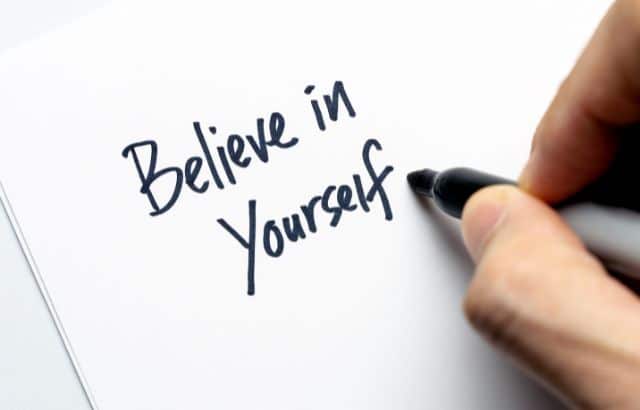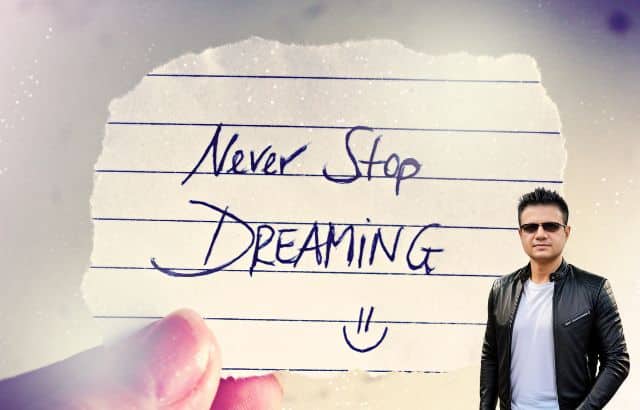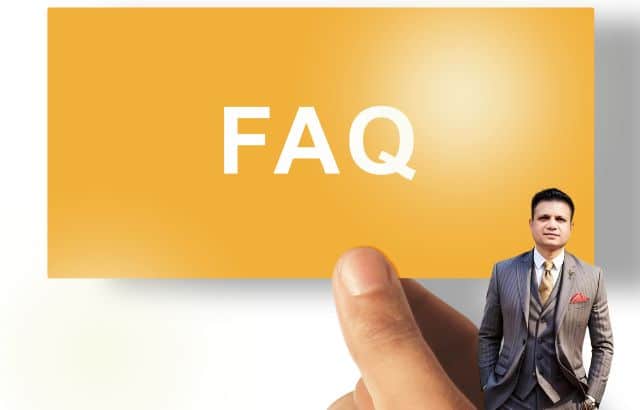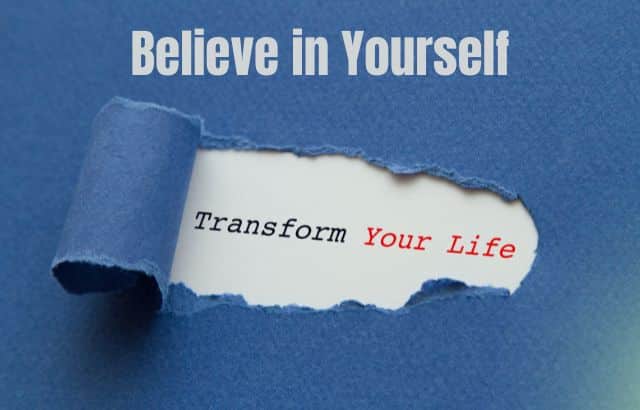Believe in Yourself Meaning and How It Can Transform Your Life- Believing in yourself is a foundational mindset that can lead to life-changing transformations. When you truly embrace the principle to believe in yourself, you’re empowering yourself to overcome obstacles, pursue goals, and realize your potential. This concept is about having faith in your abilities, embracing your unique qualities, and trusting that you are capable of achieving success. Many of the world’s most successful individuals, from entrepreneurs to athletes, attribute their achievements to this one mindset—an unshakeable belief in themselves.
As Hirav Shah, a global business advisor, says, “The journey toward success begins the moment you decide to believe in yourself. This belief is the foundation for all growth.” In this article, we’ll explore the meaning of believing in yourself, why it matters, and strategies to cultivate this transformative mindset.
Table of Contents
Believe in Yourself Meaning

To believe in yourself means to trust in your abilities, decisions, and potential. It’s about recognizing your worth, maintaining a positive outlook, and staying motivated even when faced with challenges. Self-belief is a critical part of resilience and confidence, which play crucial roles in personal growth and success.
Studies show that people with higher self-belief and self-efficacy—our belief in our ability to succeed in specific situations—are more likely to set challenging goals and persist in achieving them. According to research published in the Journal of Applied Psychology, self-belief is directly linked to better performance, greater motivation, and a higher likelihood of success. When you believe in yourself, you’re equipping yourself with a mindset that fosters growth, persistence, and resilience.
“Believing in yourself isn’t about ignoring your flaws; it’s about understanding your strengths and embracing your journey,” says Hirav Shah. “When you truly believe in yourself, you become unstoppable.”
Believe in Yourself Meaning – The Impact of Believing in Yourself

- Increases Resilience: When you believe in yourself, setbacks and failures are seen as learning experiences rather than dead-ends. This perspective enables you to bounce back more quickly and continue moving forward with renewed determination.
- Enhances Decision-Making: Confidence in your abilities allows you to make better decisions, especially under pressure. When you believe in yourself, you trust your judgment, making it easier to take calculated risks.
- Boosts Motivation: Believing in yourself keeps you motivated. You’re more likely to take proactive steps toward your goals because you trust that your efforts will lead to positive outcomes.
- Improves Mental Health: Self-belief is linked to better mental health, lower stress levels, and greater satisfaction with life. Research in the Journal of Personality and Social Psychology found that individuals with high self-belief report higher happiness and well-being.
“To believe in yourself is to empower your mind to overcome obstacles,” Hirav Shah notes. “This belief fuels resilience, courage, and inner peace.”
Believe in Yourself Meaning – Strategies to Cultivate Self-Belief

While self-belief is transformative, it’s not always easy to maintain, especially in the face of adversity. Here are some practical strategies to help you strengthen your ability to believe in yourself:
1. Set Achievable Goals and Track Progress
Setting small, attainable goals and tracking your progress can boost your self-belief. Achieving these goals reinforces the notion that you’re capable of success, building your confidence over time.
Research Insight: According to a study published in the Journal of Motivation and Emotion, goal-setting is linked to improved self-efficacy and motivation, both of which contribute to increased self-belief.
“Success is a series of small wins,” Hirav Shah emphasizes. “Each time you achieve a goal, your ability to believe in yourself grows stronger.”
2. Focus on Your Strengths
One of the simplest yet most effective ways to believe in yourself is to focus on your strengths. Make a list of your talents, skills, and past achievements, and remind yourself of these qualities regularly. Acknowledging what you’re good at helps to reinforce your self-worth.
“Knowing your strengths is the first step to building unshakeable self-belief,” says Hirav Shah. “To believe in yourself is to recognize the unique value you bring to the world.”
3. Challenge Negative Self-Talk
Negative self-talk can undermine your ability to believe in yourself. Whenever you notice self-doubt creeping in, challenge it with evidence of your achievements and capabilities. Replacing negative thoughts with constructive, positive ones can shift your mindset and bolster your self-belief.
Research Insight: A study from Psychological Science found that individuals who practiced positive self-affirmations were more resilient to stress and better able to maintain confidence in high-pressure situations.
4. Visualize Success
Visualization is a powerful tool to help you believe in yourself. Picture yourself successfully completing tasks, reaching your goals, and overcoming challenges. This mental rehearsal creates a blueprint for success in your mind, helping you feel more confident when it’s time to take action.
“Visualization aligns your mindset with your goals,” Hirav Shah shares. “When you see yourself succeeding, it becomes easier to believe in yourself in reality.”
5. Learn from Failures and Celebrate Growth
Failure is a natural part of life and often a stepping stone to success. When things don’t go as planned, analyze the situation to learn what you can improve upon. Celebrate your growth and progress, even if the outcome wasn’t perfect. This attitude shift can strengthen your ability to believe in yourself even when facing setbacks.
“Failure is feedback, not defeat,” says Hirav Shah. “To truly believe in yourself, embrace each lesson as a building block to greater success.”
6. Surround Yourself with Positive Influences
The people around you can significantly impact your self-belief. Surround yourself with individuals who uplift you, believe in your potential, and encourage you to pursue your goals. Positive influences can reinforce your belief in yourself and provide valuable support.
Research Insight: According to a study published in Social Psychological and Personality Science, individuals surrounded by positive, supportive peers show higher levels of self-belief and confidence.
“Choose relationships that amplify your self-belief,” Hirav Shah advises. “The right support can make it easier to consistently believe in yourself.”
Believe in Yourself Meaning – A Transformative Mindset
Believing in yourself is not just a phrase; it’s a mindset that can transform your life. With self-belief, you’re more likely to take risks, set ambitious goals, and persevere in the face of adversity. The journey to believe in yourself may not always be easy, but the rewards are life-changing.
Studies indicate that individuals with strong self-belief are more resilient, motivated, and likely to achieve success. This quality gives you the courage to venture beyond your comfort zone, embrace new challenges, and continuously grow.
“When you truly believe in yourself, the world becomes a canvas of possibilities,” says Hirav Shah. “It’s not just about achieving goals—it’s about transforming who you are and what you’re capable of.”
15 Powerful Believe in Yourself Quotes to inspire and motivate you

- “Believe in yourself and all that you are. Know that there is something inside you that is greater than any obstacle.” – Christian D. Larson
- “The only limit to our realization of tomorrow is our doubts of today.” – Franklin D. Roosevelt
- “Don’t be pushed around by the fears in your mind. Be led by the dreams in your heart.” – Roy T. Bennett
- “Believe you can and you’re halfway there.” – Theodore Roosevelt
- “As soon as you trust yourself, you will know how to live.” – Johann Wolfgang von Goethe
- “You have to believe in yourself when no one else does—that makes you a winner right there.” – Venus Williams
- “To be a champ, you have to believe in yourself when nobody else will.” – Sugar Ray Robinson
- “If you don’t have confidence, you’ll always find a way not to win.” – Carl Lewis
- “Believe in your infinite potential. Your only limitations are those you set upon yourself.” – Roy T. Bennett
- “No one can make you feel inferior without your consent.” – Eleanor Roosevelt
- “Trust yourself. You know more than you think you do.” – Benjamin Spock
- “Believing in yourself is the first secret to success.” – Unknown
- “Self-belief is not something that comes naturally to everyone, so if you have it, treasure it.” – Chris Pine
- “When you believe in a thing, believe in it all the way, implicitly and unquestionably.” – Walt Disney
- “You are the only person on earth who can use your ability.” – Zig Ziglar
These quotes highlight the importance of self-belief as the foundation for achieving goals, overcoming challenges, and living authentically. Let me know if you’d like more!
Here are some FAQs on “Believe in Yourself Meaning and How It Can Transform Your Life” designed for easy understanding:
FAQs on Believe in Yourself Meaning

1. What does “believe in yourself” mean?
“Believe in yourself” means to have confidence in your own abilities, qualities, and judgment. It’s about trusting that you have the strength, skills, and determination to face challenges and achieve your goals, even when things seem difficult.
2. Why is it important to believe in yourself?
Believing in yourself is essential because it gives you the confidence to take action, face obstacles, and pursue your dreams. When you have self-belief, you’re more likely to take risks, persevere through setbacks, and stay motivated when things get tough.
3. How can I start believing in myself?
- Set achievable goals: Break larger tasks into smaller, manageable steps.
- Celebrate small wins: Recognize your progress, even if it’s just a little bit at a time.
- Surround yourself with positivity: Engage with people who encourage and support you.
- Challenge negative self-talk: Replace self-doubt with affirmations and positive statements.
- Learn from failure: See setbacks as opportunities to learn and grow rather than as signs of inadequacy.
4. Is believing in yourself the same as being arrogant?
No, believing in yourself is about having self-confidence and trusting your abilities, while arrogance is an overestimation of one’s importance, often without consideration for others. Belief in yourself is grounded in self-awareness and humility, while arrogance tends to dismiss others’ perspectives and contributions.
5. Can a lack of self-belief be overcome?
Yes, lack of self-belief can be overcome with time, practice, and intentional effort. It may involve addressing underlying fears, reframing negative thought patterns, and gradually building up confidence through small successes and affirmations.
6. What are the benefits of believing in yourself?
- Greater resilience: You’ll be more likely to keep going after setbacks.
- Increased motivation: Confidence drives action and keeps you moving toward your goals.
- Improved mental health: Positive self-belief often leads to less anxiety and depression.
- Better decision-making: When you trust yourself, you make choices based on your values and strengths.
7. What is the difference between self-belief and self-doubt?
Self-belief is the confidence in your ability to succeed, while self-doubt is the feeling of uncertainty about your capabilities. Self-belief encourages action, while self-doubt can hold you back and lead to hesitation or inaction.
8. How does self-belief affect relationships?
When you believe in yourself, you’re more likely to set healthy boundaries, express your needs confidently, and engage in relationships that support your growth. This can lead to stronger, more positive connections. Conversely, a lack of self-belief may result in seeking validation from others, leading to imbalanced relationships.
9. Can believing in yourself make me more successful?
Believing in yourself can certainly increase your chances of success. It encourages you to take initiative, stay persistent, and handle setbacks more effectively, all of which are critical components of achieving success. However, self-belief should be paired with continuous learning, effort, and action.
10. Is believing in yourself a skill?
Yes, believing in yourself can be cultivated over time. It’s a skill that you develop by building self-awareness, practicing self-compassion, and creating positive habits. Just like any other skill, it requires consistency and practice to strengthen.
11. How does fear relate to believing in yourself?
Fear often arises from self-doubt or uncertainty about your abilities. Believing in yourself can help reduce fear by fostering confidence that you have the capability to handle challenges, even if they seem intimidating at first.
12. What are some quotes that inspire belief in oneself?
- “Believe you can and you’re halfway there.” — Theodore Roosevelt
- “It does not matter how slowly you go as long as you do not stop.” — Confucius
- “You are braver than you believe, stronger than you seem, and smarter than you think.” — A.A. Milne
- “Your value doesn’t decrease based on someone’s inability to see your worth.” — Unknown
13. How does believing in yourself help in difficult times?
During tough times, self-belief gives you the inner strength to persevere. It helps you trust that you can learn from the experience and that you have the capability to navigate through challenges, even when the outcome is uncertain.
14. Can I believe in myself even if others don’t?
Yes, believing in yourself is not dependent on the approval of others. While support from others can be encouraging, your self-belief should come from within. When you trust yourself, you’re less likely to be swayed by others’ opinions and more likely to stay true to your values and goals.
15. Is it possible to overestimate your abilities while believing in yourself?
It’s important to balance self-belief with humility and self-awareness. While it’s great to believe in your abilities, it’s also crucial to recognize your limits and areas for growth. Healthy self-belief involves a realistic understanding of what you’re capable of and a willingness to improve and learn.
Conclusion
To believe in yourself is to give yourself the greatest gift of all—the permission to pursue your dreams without hesitation. It’s a mindset that empowers you to act with confidence, persist through challenges, and embrace the potential within you. Building self-belief takes time, but the journey is worth every step.
As Hirav Shah wisely states, “Self-belief is the anchor that keeps you grounded yet lets you soar. The moment you choose to believe in yourself, you unlock a world of possibilities.”
Remember, success starts with a decision—to believe in yourself wholeheartedly and commit to a journey of growth, resilience, and transformation. Embrace this belief, and watch as it transforms not only your career but your entire life.










